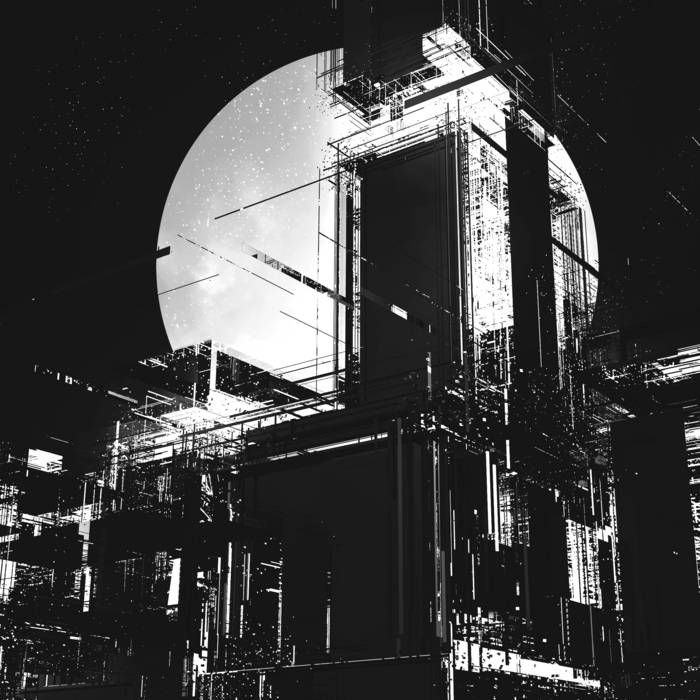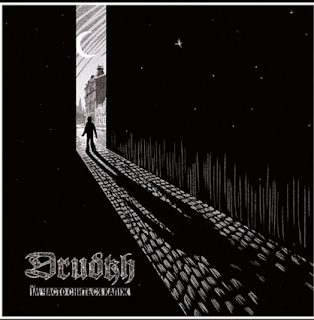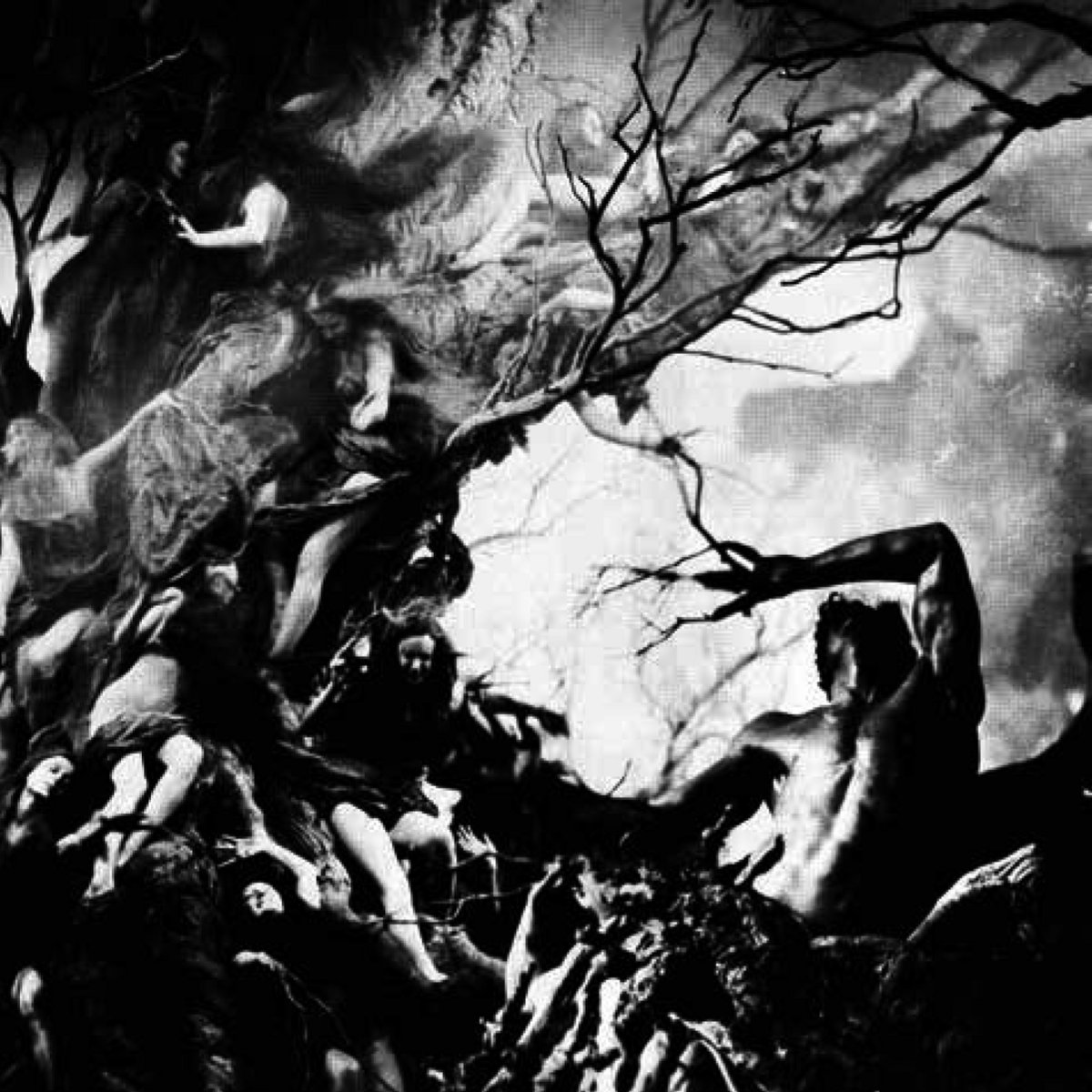Welcome back ladies and germs, to a new segment I've decided to call New Music Wednesdays, wherein we try our best to get through Hump Day with some new tunes worth checking out!
This week has seen new music premiere from old fixtures and scrappy newcomers alike - Canadian post-rock mainstays Godspeed You! Black Emperor, French synthwave titan Perturbator, and Texas industrial lunatics Street Sects.

Godspeed You! Black Emperor (henceforth 'Godspeed') require no introduction. The collective singlehandedly defined post-rock's controversial "second wave" in the late 90s and early 2000s with a handful of seminal masterpieces, only to reemerge in the early 2010s with a decidedly more experimental, drone-tinted output. The third LP of this incarnation of the band,
Luciferian Towers, is slated to be released in late September on Montreal's Constellation Records (you can preorder the record
here) and made waves with its politically-charged press release which included, among other statements, a blanket ban on the album's export to Israel. Nevertheless, Godspeed have released two singles from the album - 'Undoing A Luciferian Towers'[sic]', the introductory track, which premiered over the weekend, and, this morning, the Quietus debuted 'Anthem For No State Pt. III', the LP's closing track. You can stream 'Undoing'
on the band's bandcamp here and 'Anthem' on the Quietus
here.
Godspeed's music has always been an exercise in length, with long-form tracks flowing between numerous themes, moods, textures, and melodies over their hefty duration. However, 'Undoing' commences
Luciferian Towers with five minutes of flitting between ephemeral, heavy atmospherics and uncompromising, cavernous drone, echoing the band's most recent record
Asunder, Sweet, and Other Distress. The song builds in tension over its eight-minute duration, exploding into a melodic, guitar-and-violin-driven climax to close out the song. 'Anthem', conversely, sees the band at their most triumphant, with chaotic, turbulent noise transforming almost immediately into the awe-inspiring, sublime beauty that the collective have been purveying for over twenty years. The contrast between both tracks begs the question - what goes on in between? We'll have to wait for the 22nd to find out.

Perturbator, in a bit of a left-turn, are arguably the champions of the synthwave movement, an 80s revivalist cult that channels the decade's artistic cheese and obtuseness into a dark, dystopian, electronic context. Perturbator rose to prominence in 2014 with their
Dangerous Days LP, finding a fanbase in both electronic and metal communities alike, and bringing their stylistic niche to the public eye. Since then, the genre has all but exploded as part of a ubiquitous nostalgia for the 80s that's gripped underground music for the past three years. Even Dan Barrett of Have a Nice Life fame
has dabbled in it.
With two LPs and a handful of EPs under his belt, Perturbator's newest release
New Model sees the synthwave forerunner slowing down, creating a darker, more brooding atmosphere that lacks the bright fluorishes of prior Perturbator outings - though that's not to say
New Model doesn't have its fair share of anthemic moments (the drop on 'Tactical Precision Disarray' is absolutely jaw-dropping), but that the EP is less 80s motorcycle chase and more John Carpenter's gnawing dread. The penultimate track, 'Corrupted By Design', which veers between mid-tempo grooves and eerie, atmospheric synth lines, epitomizes this niche. Ultimately,
New Model is a departure from Perturbator's previous style and, true to form, nails the aesthetic even as it pushes the genre into new territory.
New Model is out now on Blood Music (digitally). Physical releases will be released October 20th. You can stream the album
here.
Lastly, Texas' Street Sects are veritable newborns, with just one album,
End Position, released last year on weird rock/metal label the Flenser. The project, which melds blistering industrial beats with sampling and the raw fury of hardcore, are arguably one of the most unique listens in contemporary rock (please prove me wrong and clue me into something similar if I am), and are set to release an EP,
Rat Jacket, on October 6th. Similar to Godspeed, after dropping the EP's debut track 'Blacken the Other Eye' a few weeks ago, released 'In Prison, At Least I Had You', a seven-minute (an eternity by Street Sects standards) affair that completely eschewed the duo's signature howled, screeched vocals in lieu of haunting cleans even as the industrial instrumentals rage behind them. With half the EP released,
Rat Jacket may surpass the uncompromising, destructive rage of
End Position. You can stream 'In Prison, At Least I Had You'
here.








